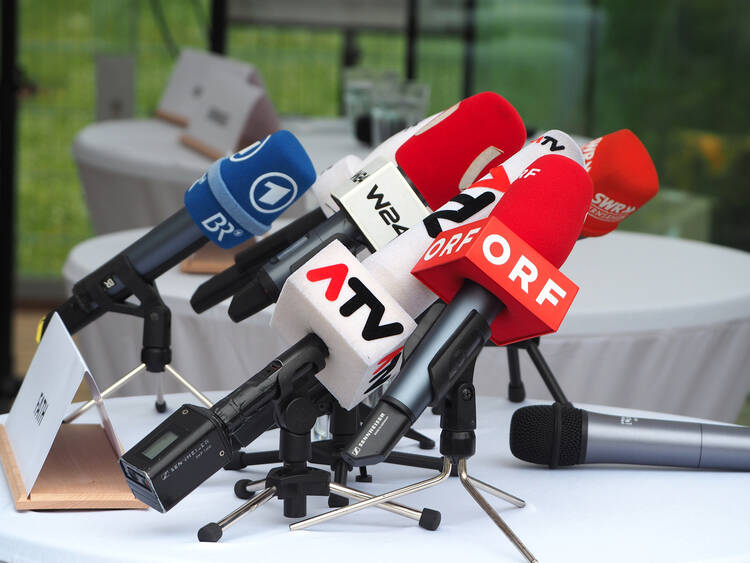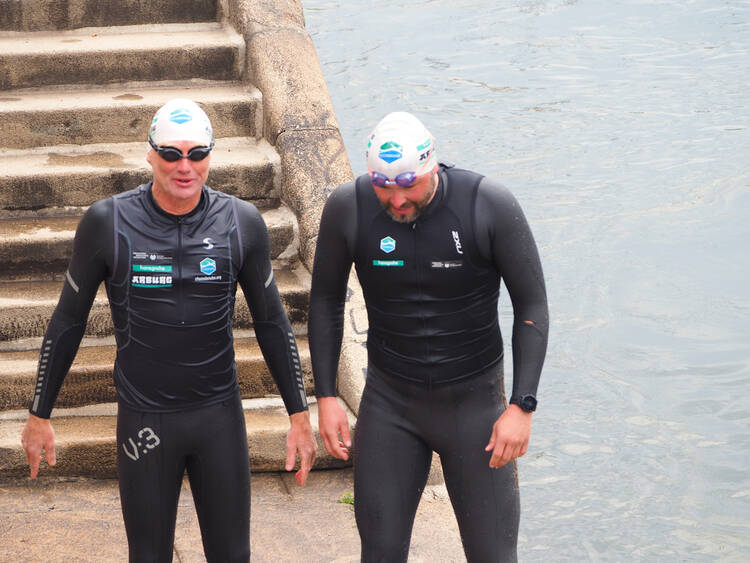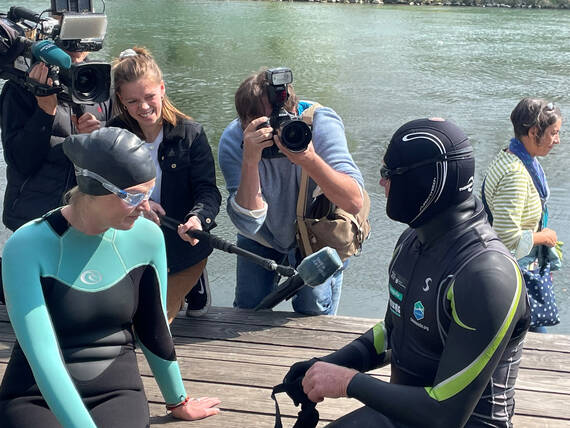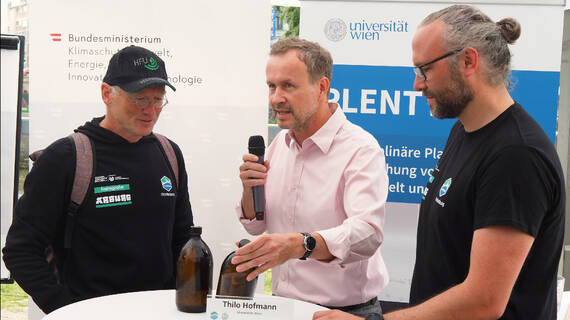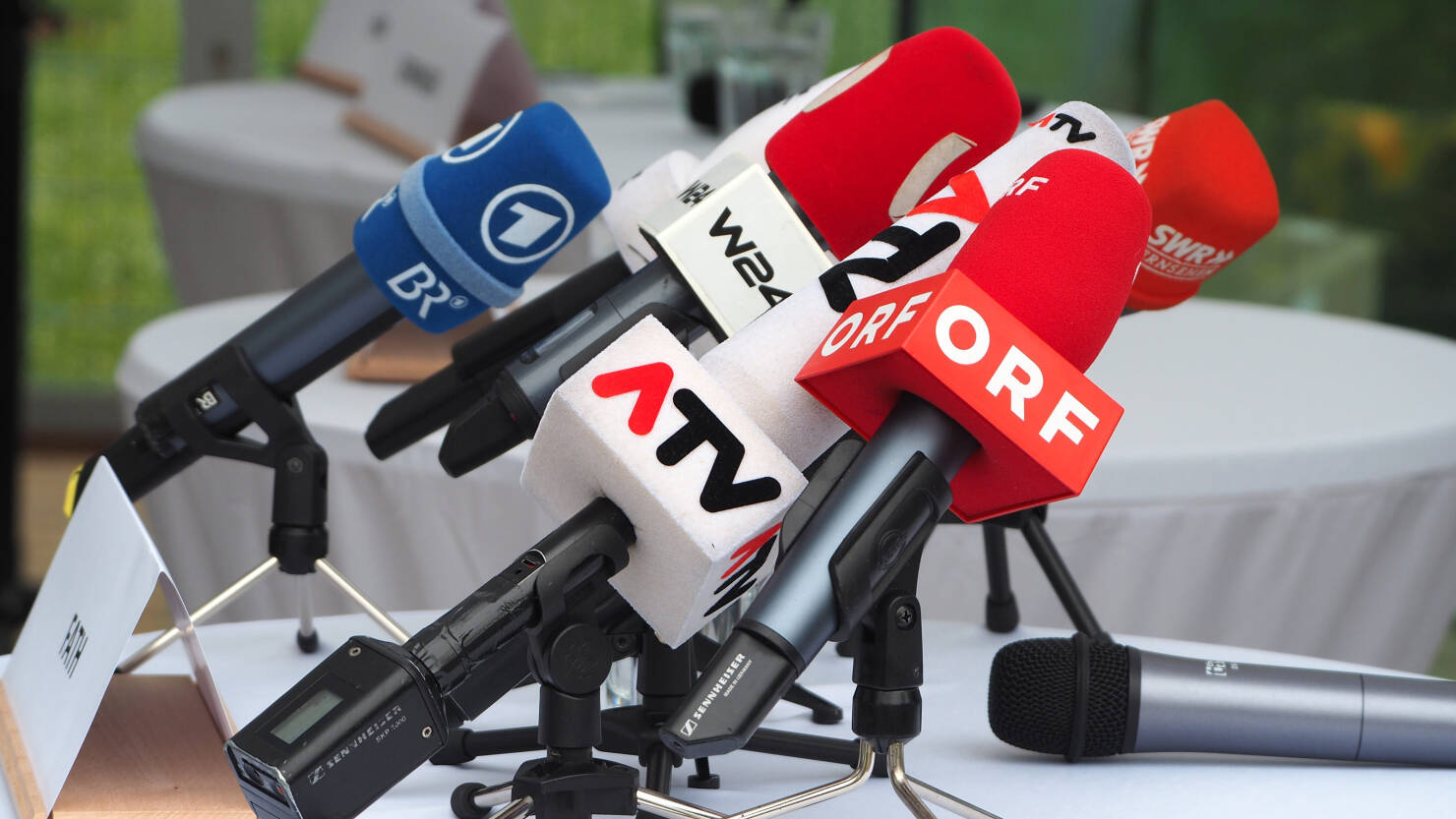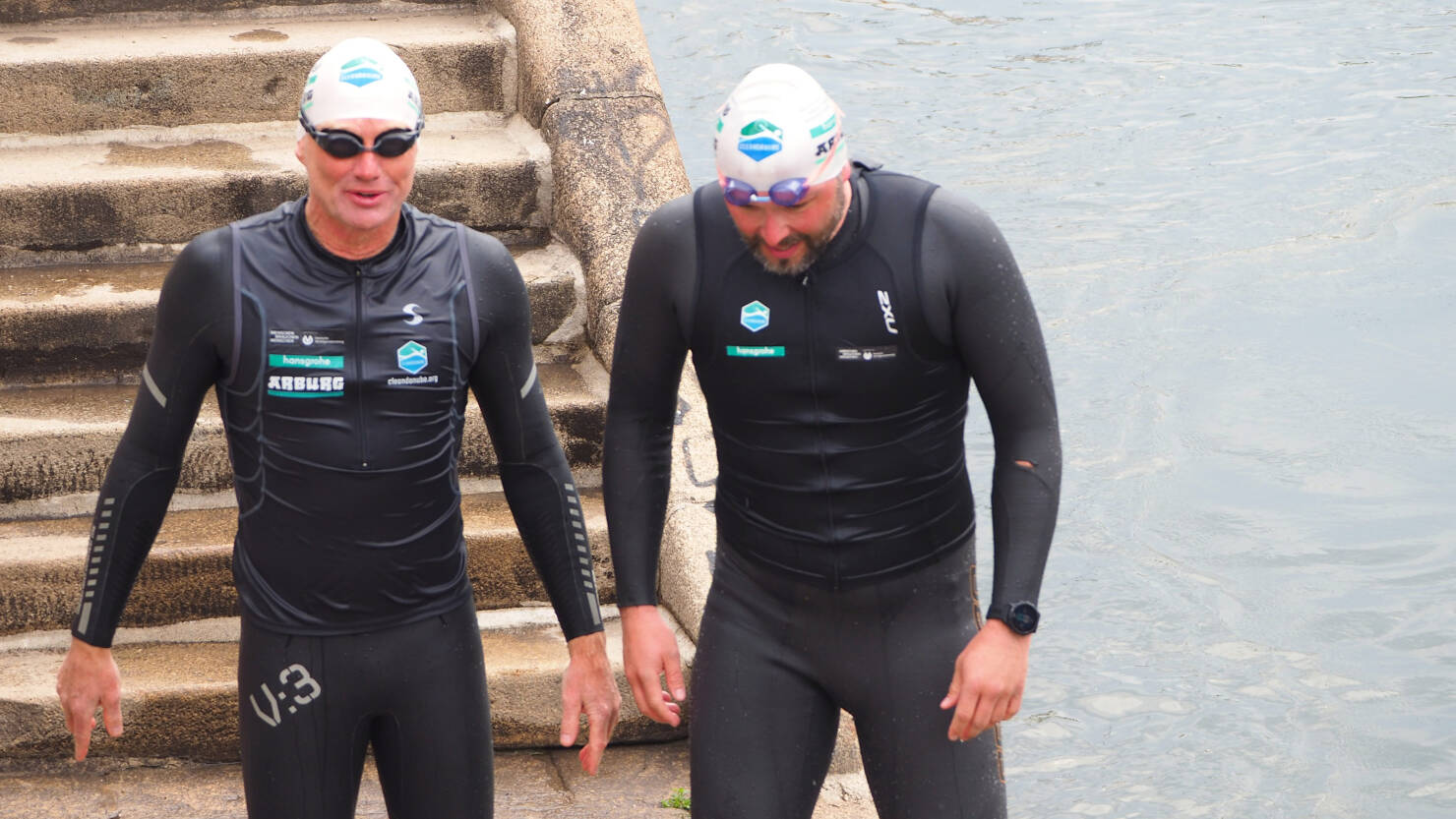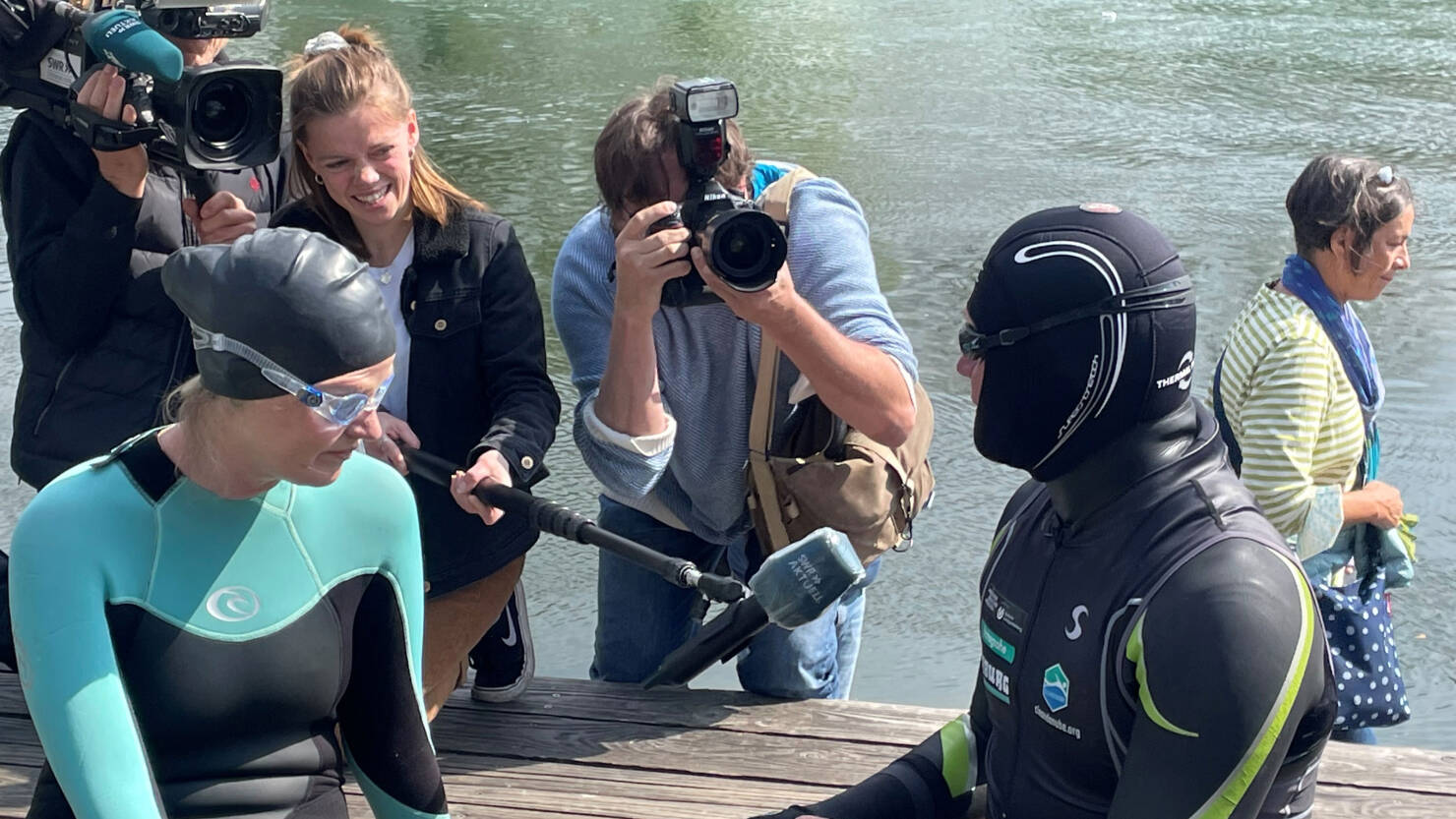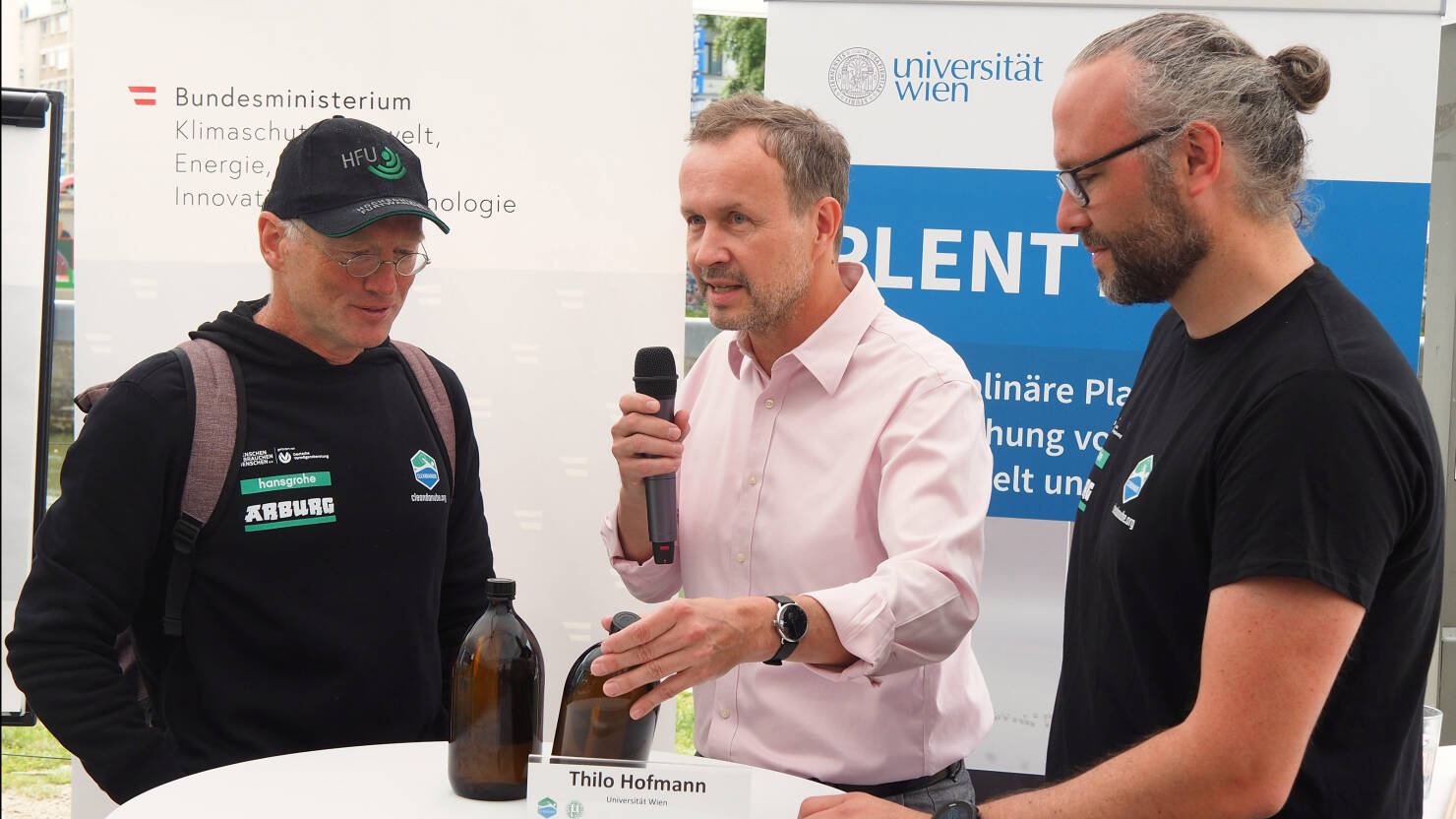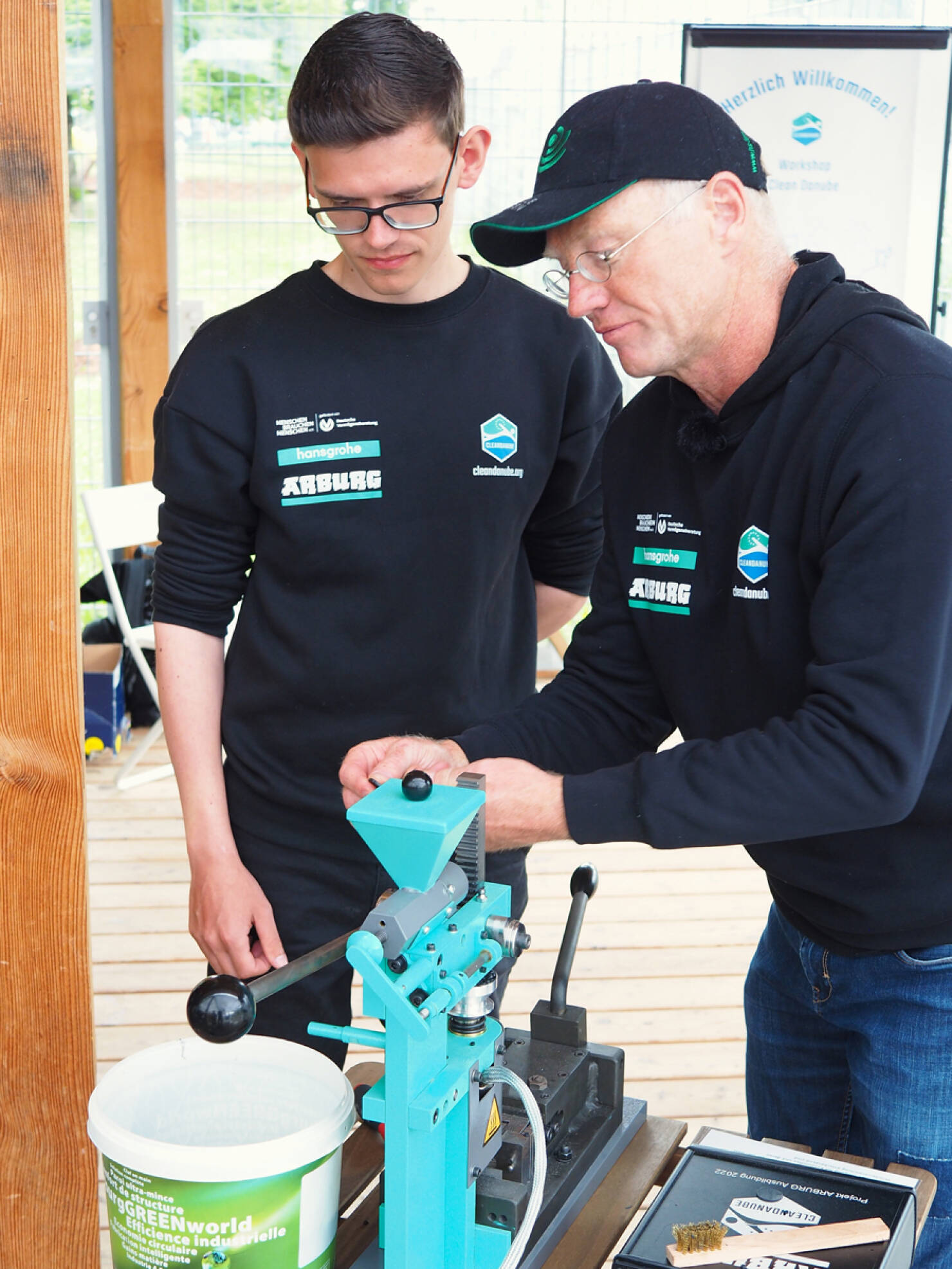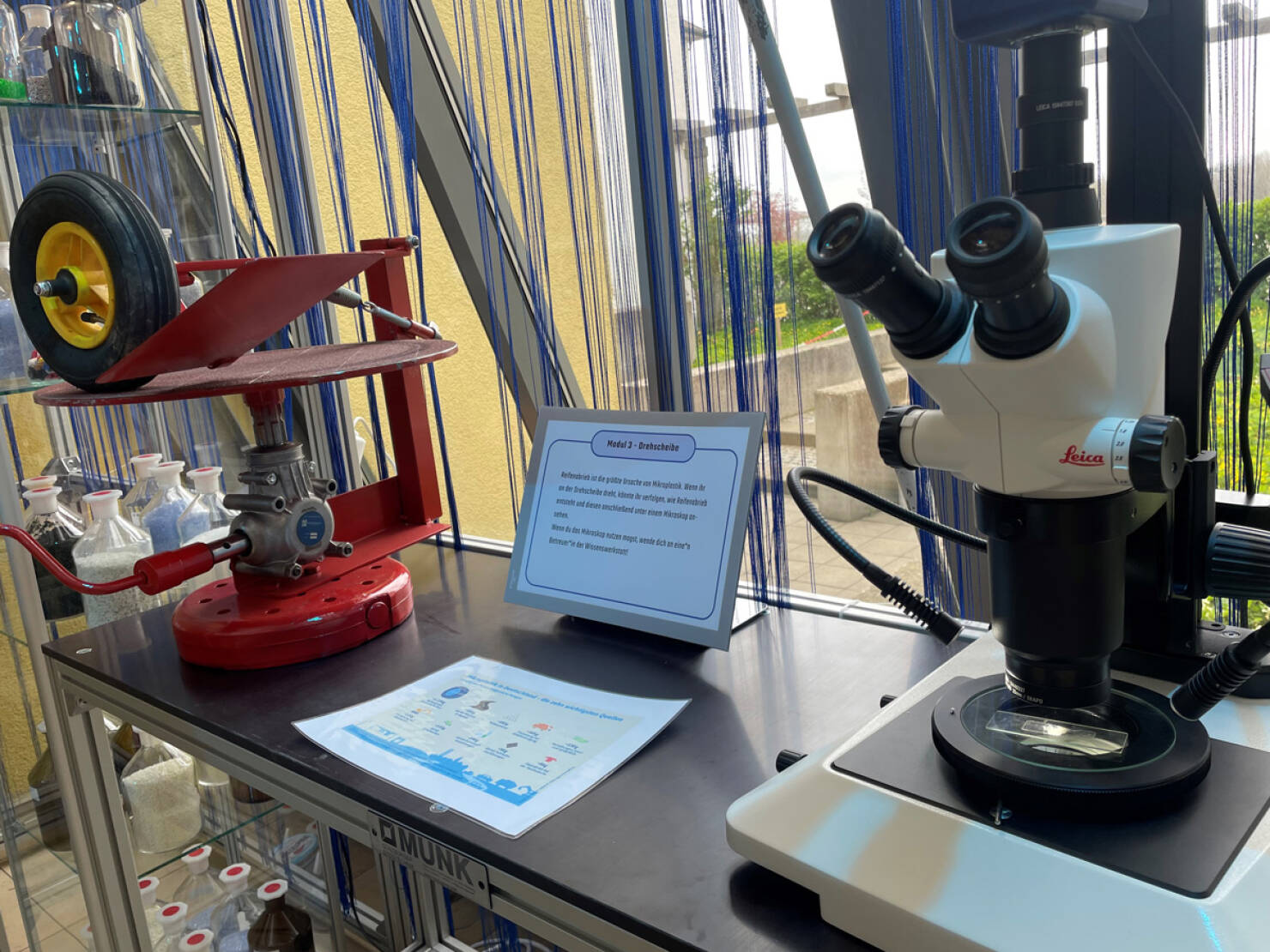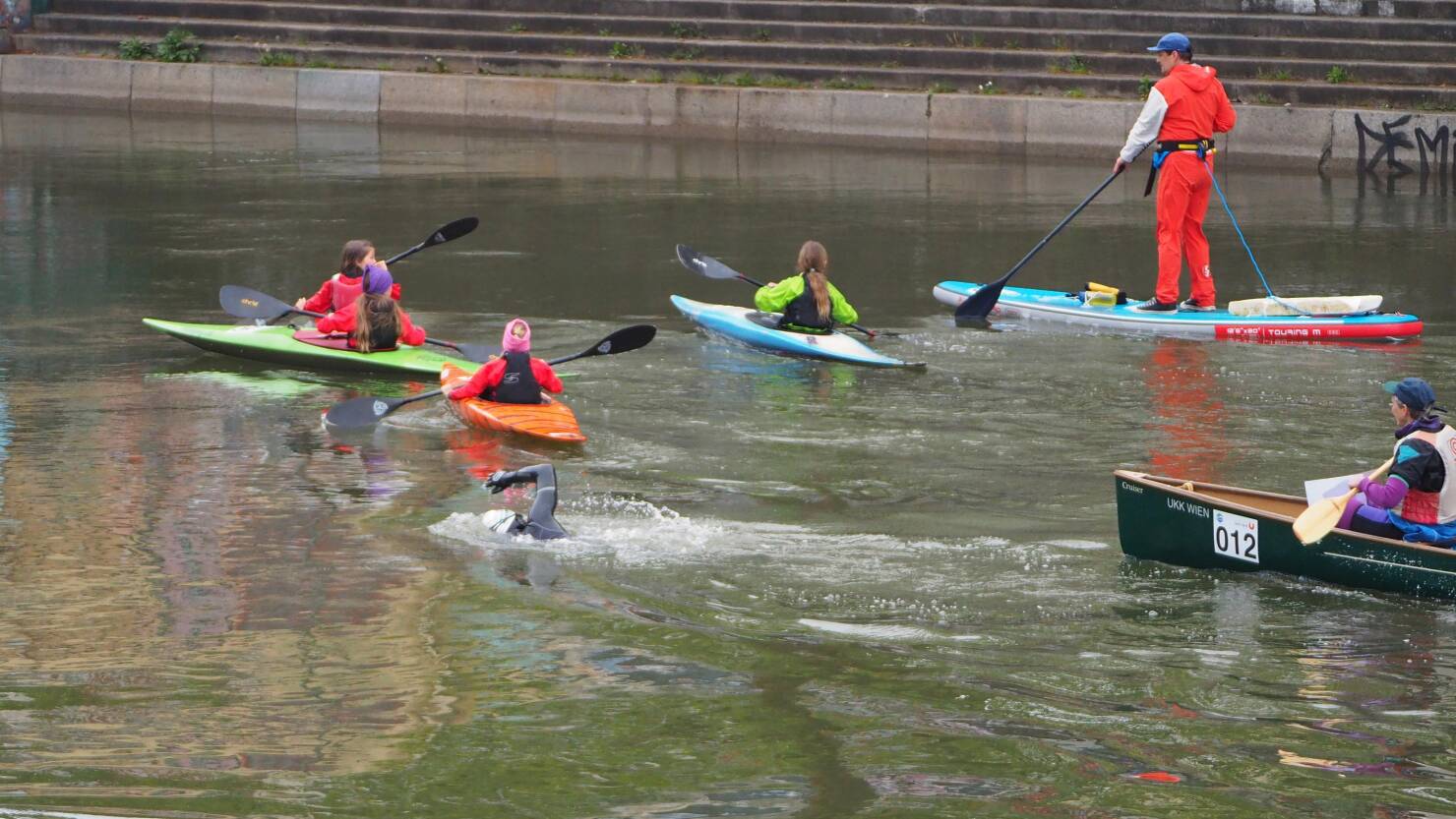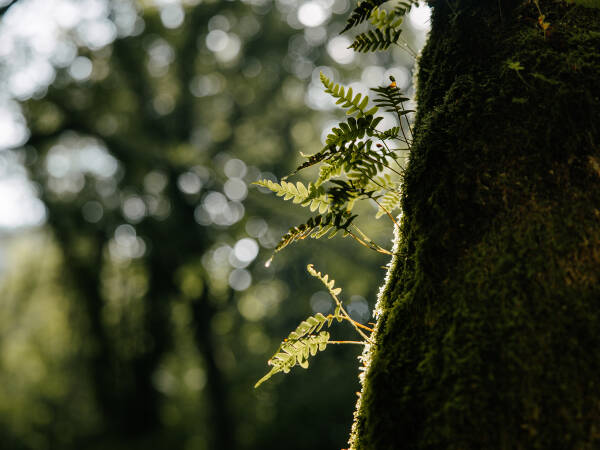Hansgrohe Water Ambassador Fath swims the Danube to serve science
When Professor Andreas Fath steps out of the Danube Canal in downtown Vienna on this chilly May morning in 2022, six TV camera teams and several journalists from print, radio and social media are already waiting for him. His reputation as a spectacular water protector precedes him, and he pushes his message ahead like a bow wave: We have a plastic problem.
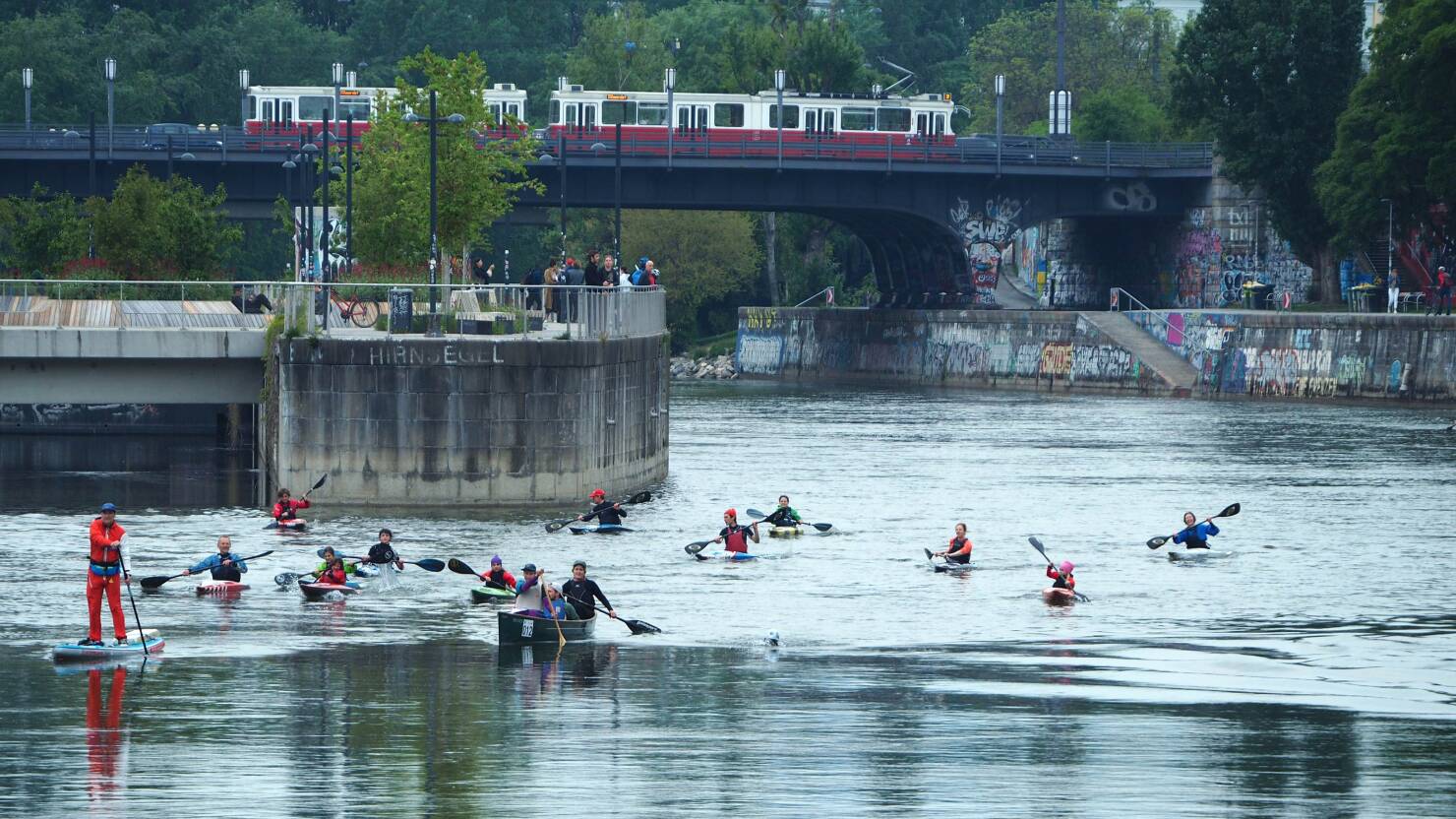
Macroplastics become microplastics. And that is everywhere.
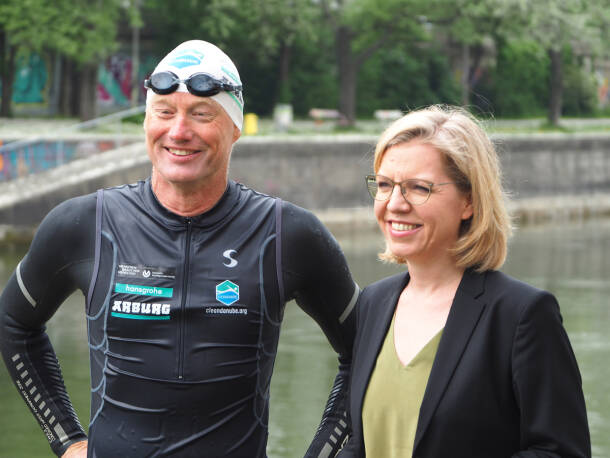
In the Danube, the problem is more than four tons. That's the amount of plastic that spills out of the river into the Black Sea every day. "We have to get it into people's heads that it is not a trivial offense to dispose of plastic waste in nature," Andreas Fath speaks emphatically into the ORF camera. Still dripping wet, in wetsuit and swimming cap, he gives interviews. "Dispose of is the wrong term anyway. The worries only start when plastic enters our rivers." With wet hands, he greets the Austrian climate protection minister.
At nearly every stop in the nine countries Fath swims through, political celebrities gather at the river's edge. This swimming professor just makes the perfect media wave! Whoever wants to report on his sustainable environmental policy, can do so - whether in Germany, Austria, Slovakia or Hungary.
Swimming inventory in the Danube
In addition, dozens of NGOs, environmental, educational and charitable organizations, and sports clubs accompany the celebrity researcher. They organize information booths, auctions and events along the river's course and make their voices heard for the good environmental cause. While a drone buzzes above his head, the Hansgrohe Water Ambassador quickly puts on dry clothes on a meadow on the riverbank, and then the press conference begins.
From the Black Forest to the Black Sea: Swimming 2,700 kilometers requires a certain amount of physical and mental strength. And Fath's stint on land seems no less demanding. "No effort is too great for clean water," the well-trained researcher tells the journalists, perhaps already thinking about the evening competition to which the Canoe Club Vienna has challenged him.
“I have nothing against plastic. It's an excellent material and less energy-intensive to produce than steel or ceramics. It just has no place in our waters, soils and bodies.”The "swimming professor" Andreas Fath
Rivers are mirrors of society
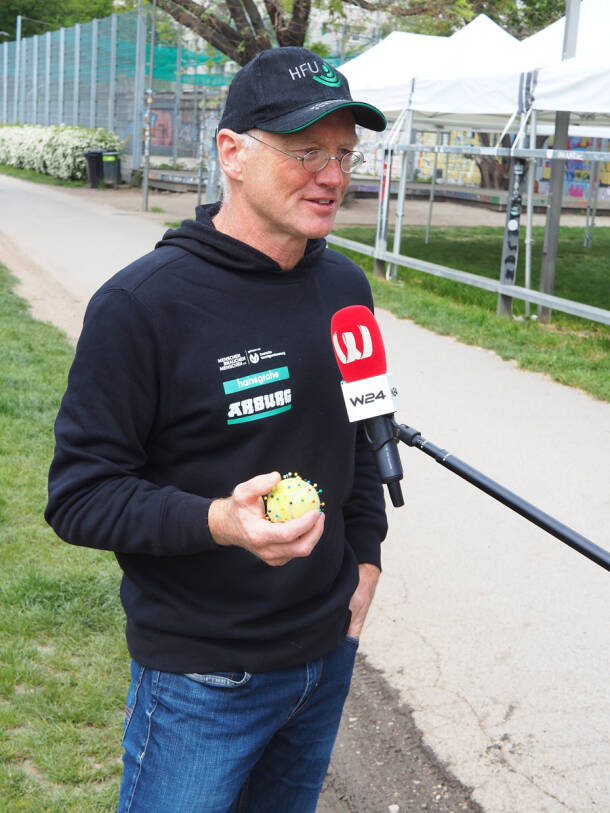
To illustrate all aspects of the plastic problem, Fath picks up a tennis ball studded with pins. "Microplastics have the ability to attract environmental toxins, hormones, or even drugs like antibiotics." Fish and seafood eat this harmful cocktail, and it ends up in people's stomachs sooner or later. Most of the plastic particles leave the digestive system again naturally, but the problem substances remain. The consequences for our immune system or our bloodstream have not yet been fully researched.
Microplastics as a dangerous Trojan
Then the scientist provides figures that make you fully aware of your own responsibility. "Seventy-five percent of the world's population feeds on marine proteins." So, globally, our affluent waste is causing enormous damage. Andreas Fath has shown many times that he is not the type to give up without a fight. He is a researcher with heart and soul and is working on future solutions for the environment at Furtwangen University. The absorption behavior of plastic, he explains, can also be harnessed - and even clean up the water! His current field of research.
cleandanube is also a race against time
"You can use microplastics specifically as a valuable material and use it like a magnet in rivers." Fath compares the principle to activated carbon filters and points to a plastic membrane he wears while swimming the Danube. Its analysis will later tell him about the river's water quality, along with the water samples taken at each stage.
What is the real state of Europe's largest river, and what solutions are there for the littering of our rivers? You will soon find the answers on this website.
Towed along by the professor: a boat with educational crew
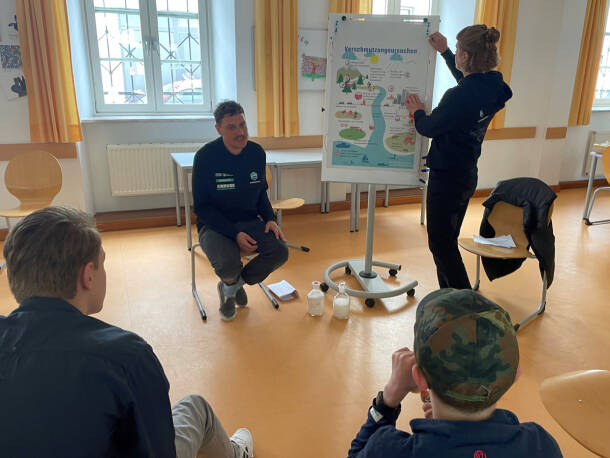
Lukas holds up a credit card. "This is about the amount of microplastics that each of us ingests on average per week." At this sentence, the young participants of the cleandanube educational program usually grimace in disgust. The students from Professor Fath's project team convey the plastic problem in a clear and age-appropriate manner. Their workshops take place right here on the banks of the Danube - or in schools and universities in the nine countries through which this infotainment journey passes. The dedicated educational crew follows the swimmer on water and on land.
Important pillar of cleandanube: environmental education and awareness
How many species of fish, birds and plants live in and along the Danube? Where does all the microplastic come from? From first-graders to university graduates, workshop participants learn concrete and amazing things here. Sarah demonstrates, for example, how much abrasion is released into the environment just by sneakers, flowing sweaters or car tires alone. The topic of microplastics moves everyone, and the discussions are lively.
Reduce. Reuse. Recycle.
During the swimming adventure, the crew sets up an exhibition on microplastics, often overnight, in the Danube towns. In the knowledge workshop, many things can be grasped haptically, interactively and emotionally. For example, how recycling works using an injection molding machine. How the river's grinding mill reduces the problematic material to microfine granules. Or how many kilos of plastic rush into the world's oceans every second. It becomes drastically clear that we cause suffering and poison other people's food. Sarah and Lukas roll up their charts, dismantle the workshop and bring everything onto the accompanying boat. Tomorrow they will tell children in Bratislava that carelessly discarded candy wrappers can give fish and ducks a stomach ache. And in a week, students in Budapest will understand that coffee-to-go cups are time bombs. We have to learn sooner rather than later: we make choices day by day that either make our environmental problems better or worse.



